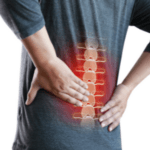Noise in the workplace is regulated around the world and remains an ongoing priority for safety professionals and workers alike. What is often overlooked? Leisure noise.
Five leisure activities that can cause noise-induced hearing loss for those that don’t take precautions:
 Fireworks;
Fireworks;- Rock concerts;
- Riding recreational vehicles;
- Mowing the lawn;
- Using a chainsaw or other power tools.
“People mistakenly think they have to be a steel worker, rock star or a race car driver to suffer hearing loss. The fact is, many employees pick up hearing loss off-the-job and bring it on the job,” explains Brad Witt, an audiologist and director of hearing conservation for Honeywell Safety Products’ Howard Leight brand of hearing protection equipment. “We assault our ears regularly – and dangerously – because we don’t often think about leisure noise as being potentially hazardous. Hearing loss is a function of noise intensity and duration. The louder the noise and longer the exposure, the greater the chance of damaging your hearing.”
Prolonged exposure to noise in excess of 85 decibels (dB), about the loudness of a hair dryer, smoke alarm or blender, poses the risk of noise-induced hearing loss, according to Witt. Exposure to nearby fireworks can measure in at 162 dB and firecrackers at 150 dB – loud enough to cause immediate physical damage to the ear if unprotected, and equivalent to artillery fire, a jet engine on take-off or a rocket launch.
Many other common activities, rock concerts (120 dB), auto racing (130 dB), chainsaws (118 dB), motorcycles (105 dB), music players (103dB), lawnmowers (94 dB) and power tools (93 dB) also pose risk from prolonged exposure, and could result in hearing damage and/or ringing in the ears from even short exposures.
“We’re so accustomed to loud noise that we’ve almost become desensitised to it,” Witt said. “One of the best things we can do to protect our hearing is to pay more attention to noise and take some simple steps to reduce risk.”
Witt offers some common-sense tips:
- When using music players, follow the 80-90 rule – listen to music players at no more than 80 percent volume for no longer than 90 minutes.
- Always wear ear plugs or ear muffs when using power equipment such as lawn mowers, chainsaws and power tools.
- If you commute to work, carry ear plugs with you so you can slip them on if you need them.
- Wear ear plugs or noise-cancelling headphones when you fly. Although airplane cabins don’t present a noise hazard, you’ll feel less fatigued and more refreshed after the flight.
How do you know if you have noise-induced hearing loss? Get evaluated by a doctor or audiologist. But there are some tell-tale signs, according to Witt. The most common cause for ringing in the ears is noise-induced hearing loss. Other potential signs are trouble understanding others even if you can hear them and difficulty hearing in crowds.
“According to the World Health Organization 360 million people around the world suffer from some level of hearing loss, and it estimates that up to half of those instances could have been prevented,” Witt said.
For more information on preventing NIHL in the workplace, download Honeywell’s white paper The Benefits of Fit Testing Hearing Protectors.
Approaches to managing the risks associated Musculoskeletal disorders
In this episode of the Safety & Health Podcast, we hear from Matt Birtles, Principal Ergonomics Consultant at HSE’s Science and Research Centre, about the different approaches to managing the risks associated with Musculoskeletal disorders.
Matt, an ergonomics and human factors expert, shares his thoughts on why MSDs are important, the various prevalent rates across the UK, what you can do within your own organisation and the Risk Management process surrounding MSD’s.


